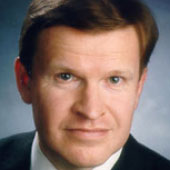Globalization and National Politics
How has the process of globalization influenced the development of national political parties?
November 20, 2009
The integrated world economy has been shaken by repeated crises — stock exchange upsets, debt crises, Mexico's "tequila effect" and the "Asian flu" contagion in Russia and South America.
The dramas have led to more and more unease about "globalization" — or alternately, as its critics call the process, "neoliberalism," "turbo-capitalism," "casino capitalism," "disordered capitalism," "capitalism pure" or "Anglo-Saxon economics."
With every crisis, an initial reaction is that the new events spell the end of a particular model of liberal economics, the so-called Washington consensus. In fact, although some crises can be cathartic and push policymakers to take corrective measures, others can be Carthaginian. In the history of the past two centuries, there has only been one such radically destructive crisis, the Great Depression, and it is not surprising that we are terrified of repeating the experience.
What are the consequences of the periodic collapses? Will the party resume again, or is the newest and most serious episode a step on the road to a profound backlash against globalization and integration?
In 1997-98, the U.S. government and international financial institutions held up the American system as a model for emulation. One decade later, the roles seem to be reversed, and it is Asia that now has the right to lecture the Americans, while Europeans are confidently predicting the imminent export of a European social model to the United States. There is a new level of radical uncertainty about institutional design.
The slogan of the new age, which was much ridiculed at the time, became that associated with Margaret Thatcher: TINA (There Is No Alternative).
In most countries, old political divisions between right and left no longer made sense in the light of globalization. At the heart of the left-right divide had been a struggle for redistribution, with the left wanting to redistribute more, and the right wanting less redistribution.
In democracies, this often produced a convergence around the center, in that both left- and right-wing parties needed to appeal to a median voter. This seemed to rule out either extreme of expropriation or the absence of redistributive taxation.
In the last decades of the 20th century, however, the factors of production became more mobile. Small countries such as Sweden with deep social democratic traditions had to lower their rates of corporate taxation in order to prevent an exodus of firms. Instead of a left-right divide, a new center emerged that welcomed globalization.
In Latin America, leftists with a Marxist background saw international openness as a way of modernizing society. So did the Communist party in some parts of India, notably West Bengal — and so, above all, did the Chinese Communist party. There was thus more convergence and consensus about the idea of the market economy than at any previous time in the 20th century.
Instead of concentrating on the battle for redistribution, which had been the political theme of the world after the Great Depression as well as after the Second World War, societies in the East and West looked for new political issues — in part because when capital flows undermined the capacity and the efficacy of national redistributionist politics, old-style politicians looked helpless.
Politicians instead focused on the environment, on corruption — in short, on issues not simply or directly related to an agenda of redistribution.
They felt their voters had become convinced of the hopelessness of conventional politics, which seemed to offer no real choice.
Editor’s Note: Excerpted from THE CREATION AND DESTRUCTION OF VALUE: The Globalization Cycle by Harold James. Copyright 2009 by the President and Fellows of Harvard College. All rights reserved.
Takeaways
In most countries, old political divisions between right and left no longer made sense in the light of globalization.
Instead of concentrating on the battle for redistribution, societies in the East and West looked for new political issues.
In 1997-98, the U.S. government and international financial institutions had held up the American system as a model for emulation. One decade later, the roles seem to be reversed.
Read previous

Remnants of Empire — Pakistan (2009)
November 19, 2009
